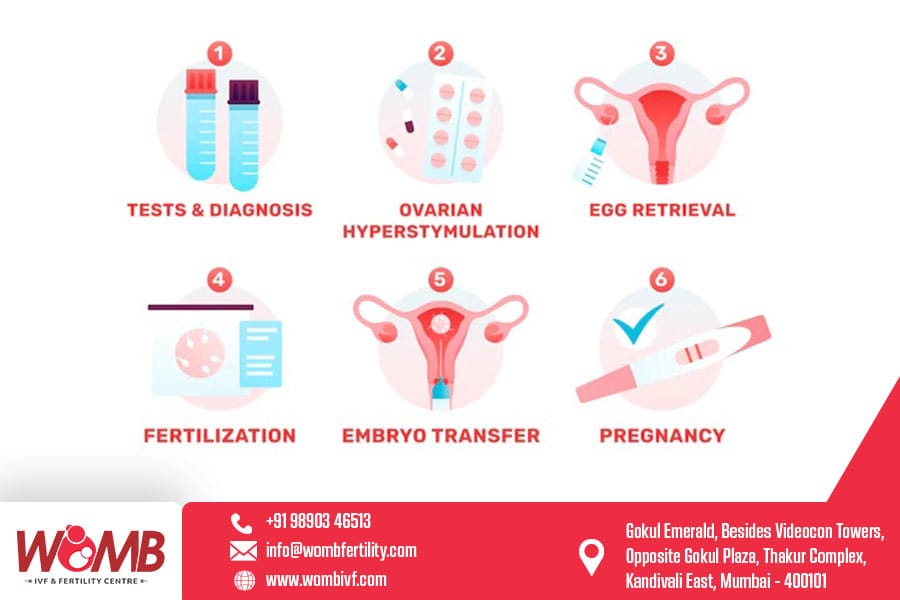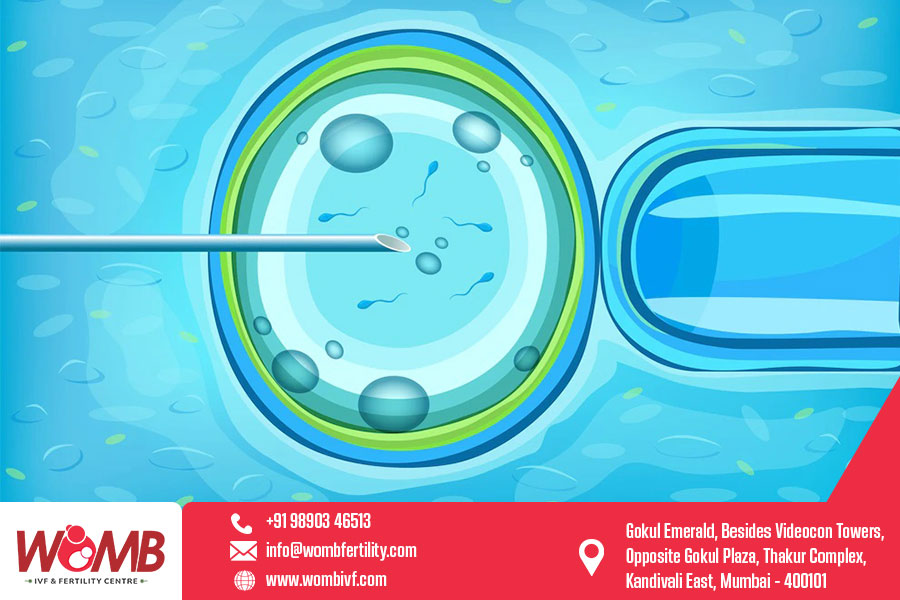What is IVF treatment?
With 1 in 8 couples experiencing infertility, the demand for IVF treatment continues to rise.
But what exactly is IVF?
In this blog, we’ll explore the ins and outs of IVF and why it’s a popular choice for couples struggling with infertility.
How is IVF done?
IVF treatment is a highly effective method of assisted reproduction that has helped millions of couples worldwide overcome infertility. The procedure for IVF treatment involves multiple steps and careful monitoring to increase the chances of success.
Firstly, the woman undergoes ovarian stimulation using medication to produce multiple mature eggs. This is closely monitored through ultrasound and blood tests. Once the eggs are mature, they are retrieved through a minor surgical procedure called egg retrieval, usually done under sedation. The eggs are then placed in a special dish for fertilization.
Fertilization can be done through insemination or Intracytoplasmic Sperm Injection (ICSI). Insemination involves mixing the eggs and sperm together in a dish and allowing fertilization to occur naturally. ICSI involves injecting a single sperm directly into each mature egg. The embryos are then monitored closely for development, and the best-quality ones are selected for transfer to the woman’s uterus. The embryo(s) are transferred through a catheter inserted through the cervix.
The duration of the IVF treatment process varies depending on the individual case but typically takes 4-6 weeks from start to finish. There are different types of IVF treatments available, including conventional IVF, natural cycle IVF, and mini IVF, each with its own specific procedures and benefits.
In a nutshell, IVF treatment is a complex and intensive process that requires careful monitoring and a range of treatment options. However, the success rates are high; for many couples, it is the answer to their dreams of starting a family.
What IVF means?
IVF, short for In Vitro Fertilization, is a groundbreaking fertility treatment that has revolutionized the lives of couples struggling with infertility. It offers hope to those who dream of having a child but face challenges in conceiving naturally.
IVF treatment involves a carefully designed procedure that maximizes the chances of a successful pregnancy. It begins with ovarian stimulation, where medications are used to stimulate the ovaries to produce multiple eggs. These eggs are then retrieved through a minimally invasive surgical procedure.
Once retrieved, the eggs are fertilized with sperm in a laboratory setting. This can be done through traditional insemination or through Intracytoplasmic Sperm Injection (ICSI), where a single sperm is directly injected into each mature egg. The resulting embryos are cultured and monitored for several days before the best-quality embryos are selected for transfer to the woman’s uterus.
The duration of IVF treatment can vary, typically lasting between four to six weeks. The success rates of IVF treatment have significantly improved over the years, offering hope and joy to many couples.
Different types of IVF treatments are available to cater to individual needs. Conventional IVF, natural cycle IVF, and mini IVF are among the options, each with its own unique approach and benefits.
Eligibility for IVF
IVF treatment can be an effective solution for couples struggling with infertility. However, not everyone is a candidate for this treatment. Eligibility for IVF treatment depends on various factors that are evaluated by fertility specialists.
Some of the factors that determine eligibility for IVF treatment include:
- Age: Women under the age of 35 generally have higher success rates with IVF treatment compared to women over 40.
- Underlying health conditions: Certain health conditions, such as endometriosis, polycystic ovary syndrome (PCOS), and male factor infertility can impact eligibility for IVF treatment.
- Previous fertility treatments: The success of previous fertility treatments, such as insemination, can also impact eligibility for IVF treatment.
- Lifestyle factors: Lifestyle factors such as smoking, obesity, and excessive alcohol consumption can also affect eligibility for IVF treatment.
In addition to these factors, there may be specific criteria for eligibility depending on the individual’s medical history and the specific type of IVF treatment recommended.
Overall, the goal of IVF treatment is to maximize the chances of a successful pregnancy for those who have been unable to conceive naturally. With advancements in technology and an increasing understanding of infertility, more and more couples are becoming eligible for IVF treatment.
In a nutshell, eligibility for IVF treatment depends on various factors, and an individual evaluation with a fertility specialist is essential. With the right approach and candidate, IVF treatment can be a life-changing solution for couples struggling with infertility.
Wrapping It Up
IVF treatment is a modern-day miracle that helps couples struggling with infertility start a family.
At Womb IVF, we offer a range of IVF treatment types, with meticulous procedures, attention to IVF treatment details, and moderate IVF treatment duration to ensure the best possible outcomes.
Contact us today to learn more about our services.






